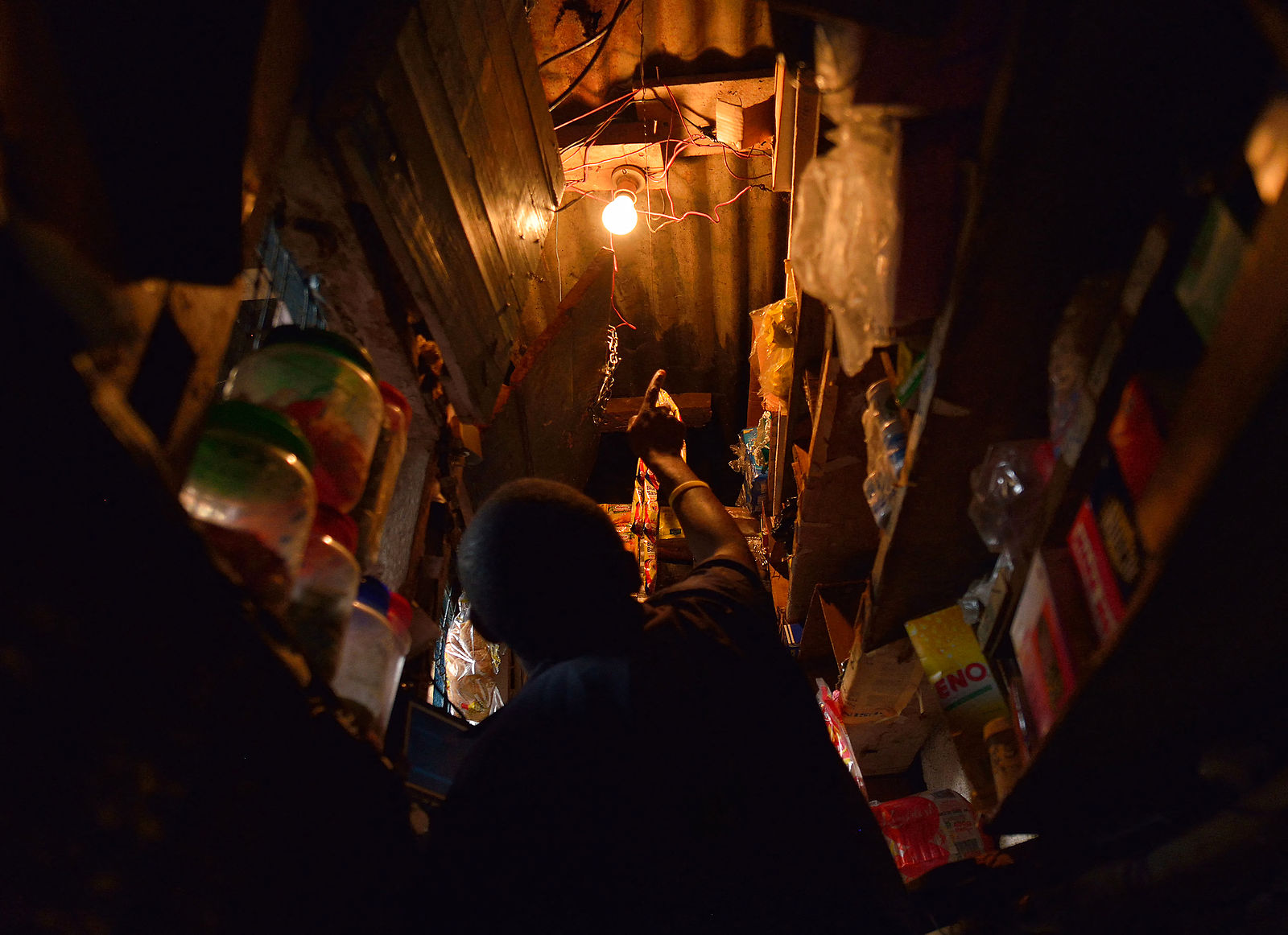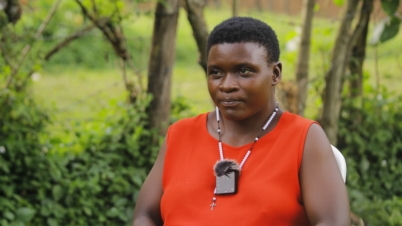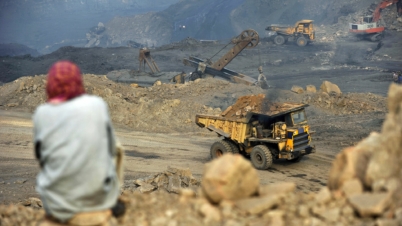
If you drive through Hell’s Gate National Park in Kenya, past zebras, gazelles and giraffes, you eventually arrive at one of the country’s largest geothermal power stations – Olkaria IV. This power station, which was developed by the state-owned company KenGen back in 2014, is today an essential source of energy for thousands of Kenyans.
However, the development of the power station has not been without problems and controversies. The project led to over 1.200 members of the Maasai community, an indigenous population, being forcibly resettled. Human rights defenders who protested against the project were arrested, and some were even subjected to police brutality.
The story about the development of the Olkaria IV power station is one of the examples highlighted in a new report from Business and Human Rights Resource Center (BHRRC).
The report looks at a number of renewable energy projects in Kenya, to investigate which problems and opportunities there are, to ensure that the transition to renewable energy in Africa is both fast and just.
According to Joseph Kibugu, who as a consultant has been part of preparing the report, there are two important messages within it:
“If not, we will have a scenario where companies’ failure to respect human rights will end up delaying the green transition”, says Joseph Kibugu.
The conversation about climate change is central to the African continent. It is well documented that Africa has not contributed as much to global CO2 emissions as other continents, and by no means as much as Europe. According to the UN’s environmental programme, UNEP, Africa has only contributed to around two to three percent of the global CO2-emissions.
In spite of this, global warming impacts countries in Africa disproportionally. This has been documented in reports prepared by a range of different organizations, like the UN, World Metrological Organization, and the World Bank.
Specifically, global warming and a rise in temperature is resulting in threats to health and safety, lack of access to water and food, and challenges for economic development in Africa.
This is one part of the conversation.
On the other side, there is also a real opportunity that Africa can become central to the green transition. There are several reasons for this.
First and foremost, there are a number of minerals, which are essential to green technologies, such as cobalt, nickel, copper and lithium – which Africa is a significant source to.
These are the minerals that are needed in, amongst other, electric vehicles, solar panels and windmills.
“So you have a real opportunity that Africa can contribute to addressing the question of climate change through extraction”, Joseph Kibugu from BHRRC explains.
But, in addition to this, it is also a question of the need for energy that there is in Africa. According to a new report by the Mo Ibrahim Foundation, 44,3% of the population in Africa have no access to electricity – we are talking about over 600 million people.
There is therefore a pressing need to increase the energy access on the continent, and there is a real possibility that this can come from renewable energy sources. There are good conditions to develop both solar, wind and geothermal energy in several places on the African continent.
This results in a nexus between need and opportunity in Africa, says Kibugu – there is a need for energy access, and an opportunity that this energy need can be met with renewable energy sources.
Kenya is a great example of exactly this. In Kenya 70% of the electricity comes from renewable energy. Whether we are talking about geothermal power stations, windmills or solar energy.
This is why the new report from the BHRRC focuses on Kenya. The report looks at a number of green energy projects in the country – to investigate what lessons can be learned from Kenya, in relation to ensuring a fast and just transition.
“Kenya can offer important lessons to the rest of Africa in terms of the transition to renewable energy”, Kibugu explains.
This is because, concurrently with large sums being used to develop renewable energy sources in Kenya, it is also a development which has brought severe challenges.
Building a wind farm, for example, demands that you have access to a large area of land, where you can put up the windmills. And this is a reality which has caused protests from local communities several times in Kenya.
Danwatch has previously written about the Kenyan Lake Turkana Wind Power Project. A project, where 365 gigantic windmills were put on land which had been given to the developers of the wind farm illegally. The land belonged to the indigenous peoples of Marsabit County, who because of the wind farm lost their access to the land, and with that, their way of life and their livelihoods.
This is also one of the examples which are brought up in BHRRC’s new report. The report demonstrates that the issues that arose with the Lake Turkana Wind Power Project are not unique. On the contrary. Problems in relation to land rights is an issue which is recurrent in all the examples that are examined in the report.
This is about communities, Kibugu explains, who are telling companies, “you have gotten this land from the government, but we have not been involved”. Or who are saying, “you are offering us compensation, but we do not agree that it is sufficient compensation”.
Essentially you have local communities who are protesting against the way in which their land is being appropriated, or the way in which they are displaced from the land on which they have always lived.
And there are good reasons for this, Kibugu says. “Violations of land rights impact a number of other rights, like housing, access to water and food, and generally impact communities’ livelihoods”.
This is why the problems around land rights are emphasized in the report.
It is not only land rights that have been violated during Kenya’s green transition.
BHRRC have documented that renewable energy projects in Kenya are also connected to attacks on human rights defenders, lack of access to information, and violations of indigenous peoples rights.
“Land rights are central to this conversation, and how it impacts other rights. And this is compounded by a lack of credible grievance mechanisms, lack of justice, and a feeling that these projects are benefiting others than the local communities themselves”, Kibugu emphasizes.
FACTS
When local communities are overlooked, ignored, and their rights violated, this can lead to significant challenges for the green transition, the report states.
We are talking about postponements, delays, and even cancellations, of the very projects that are supposed to secure renewable energy for the country.
For example, where there are protests that lead to litigation, this can cause projects to be postponed, “this is an obvious way of stalling the fast transition”, Kibugu says.
Furthermore, the report from the BHRRC emphasizes that where there is a lack of regard for local communities’ rights, one can end up in a situation where investors are dissuaded from supporting the projects.
Back in 2019, the European Investment Bank pulled a loan of a staggering 192 million dollars, when it became clear that the company who were planning the development of the new geothermal power station in Kenya, had not made a plan for how the local community were to be compensated once they were displaced.
“If delays, due to protests as a response to violations of human rights become the pattern with renewable energy projects, one could get a situation where investors become skeptical – in this way, violations of human rights will end up delaying a green transition”, Kibugu explains.
In one of the most recent reports from the IPCC it is made abundantly clear that the only way to avoid global temperature rises over 1.5C, is fast and immediate transition to renewable energy.
Delays and cancellations of renewable energy projects, due to a lack of respect for human rights, will thus put us in a precarious situation.
The transition to renewable energy thus demands that companies – parallel with the increased need for energy and minerals – do not aggravate existing problems and violate the human rights of local communities.
To ensure this, there are a number of measures which companies can implement, to break with the current pattern, says Joseph Kibugu from the BHRRC.
Before the projects start, companies should conduct a due diligence analysis in line with the UN General Principles on Business and Human Rights (UNGP), to establish how the project will affect local communities
Companies should ensure that everyone has access to information regarding what is being planned, what the foreseeable consequences are, and how local communities will be affected
As a foundation there must thus be respect for local communities and assurances that companies live up to the UNGP.
Joseph Kibugu says that the problems they are documenting, are often caused by a lack of leadership, “and European companies need to rise up and fill this gap. We are seeing positive voices, but it needs to happen now, it is urgent”.
“A situation where all parties benefit from the green transition is possible, we have no doubt about this. But it demands dialogue. It demands co-ownership agreements. It demands the buy-in of the communities, so that communities do not feel left out, but part and parcel of the conversation”.



